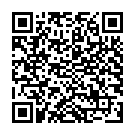|
|
|
| Module code: MST2.EN1 |
|
|
2S (2 hours per week) |
|
2 |
| Semester: 1 |
| Mandatory course: yes |
Language of instruction:
English/German |
Assessment:
Written exam 150 min.
[updated 05.10.2020]
|
MST2.EN1 (P231-0030) Mechatronics and Sensor Technology, Bachelor, ASPO 01.10.2019
, semester 1, mandatory course
MST2.EN1 (P231-0030) Mechatronics and Sensor Technology, Bachelor, ASPO 01.10.2020
, semester 1, mandatory course
|
30 class hours (= 22.5 clock hours) over a 15-week period.
The total student study time is 60 hours (equivalent to 2 ECTS credits).
There are therefore 37.5 hours available for class preparation and follow-up work and exam preparation.
|
Recommended prerequisites (modules):
None.
|
Recommended as prerequisite for:
MST2.EN2 Technical English and Professional Presentations for Mechatronics Engineers
MST2.EN3 Applying for an Engineering Job
MST2.SPR Mechatronics Project in English
[updated 12.04.2021]
|
Module coordinator:
Dr. Julia Frisch |
Lecturer:
Sebastian Barth, M.A.
[updated 21.01.2020]
|
Learning outcomes:
The modules _Business English for Mechatronics Engineers_, _Technical English for Mechatronics Engineers_, _Applying for an Engineering Job_, as well as _Technical Reports and Presentations for Mechatronics Engineers_ in the "Mechatronics Project in English" module should be seen in conjunction with one another. The goal is for the students to develop their English language skills in the professional and technical field from the desired entry level B1 to B2 of the European Framework of Reference for Languages within the course of the respective modules.
After successfully completing this module, students will be able to introduce themselves and others in their professional environment in English and talk to future business partners and colleagues about their own work and their professional activities. Students will be aware of the intercultural context and be able to react appropriately. In addition, students will be able to answer the phone, make appointments by telephone and forward calls in English. Students will also be able to write standard business letters and business e-mails (inquiry, order, or reply) in English.
[updated 05.10.2020]
|
Module content:
_ Business contacts (greetings, introducing oneself and others, small talk)
_ Describing one´s job activity and one´s company
_ Telefone calls (general means of speech for telephone calls, taking messages, making appointments and scheduling business meetings)
_ Planning and carrying out business trips
_ Types of business documents
_ Writing formal letters and emails
_ Repetition and consolidation of basic vocabulary and basic grammatical structures
Special attention will also be paid to learning strategies that will enable students to learn more effectively and independently.
[updated 05.10.2020]
|
Teaching methods/Media:
Learning objectives will be achieved through integrated training of the four basic skills (listening comprehension, reading comprehension, speaking and writing) supported by multimedia, as well as the repetition of basic grammar and vocabulary. Communication training for job-relevant situations will take place within the framework of learner-centered lessons in the multimedia computer language laboratory. Vocabulary work, as well as the consolidation of the content taught will be supported by voluntary self-study phases in the multimedia computer language laboratory.
[updated 05.10.2020]
|
Recommended or required reading:
Books:
P. Emmerson: Business Grammar Builder. Macmillan.
R. Murphy: English Grammar in Use. A self-study reference and practice book for intermediate students. OUP.
G. Häublein, R. Jenkins: Thematischer Grund- und Aufbauwortschatz Englisch. Klett.
Thematischer Grund- und Aufbauwortschatz Englisch. Neue Ausgabe. Klett.
Thematischer Grund- und Aufbauwortschatz Englisch. Übungsblätter. Klett.
Multimediale Sprachlernprogramme, E-Learning und Mobile Learning:
Susanne Ley, Christine Sick: prep course English (m&eLanguageLearningPortal@CAS: e&m-Learning-Angebot zur Unterstützung der Studierenden beim Englischlernen am Campus Alt-Saarbrücken der htw saar)
Christine Sick (2015): htw saar TechnoPlus Englisch VocabApp (Mobile Learning Angebot insbesondere zum Grundwortschatz, alle Niveaustufen), EUROKEY.
Christine Sick, unter Mitarbeit von Miriam Lange (2011): TechnoPlus English 2.0: Ein multimediales Sprachlernprogramm für Technisches und Business Englisch (Niveau B1-B2+), EUROKEY.
Dictionaries:
PONS Großwörterbuch für Experten und Universität. PONS.
PONS Lexiface. Professional English (CD-ROM). PONS.
Macmillan Essential Dictionary for Learners of English (mit CD-ROM). Macmillan.
Macmillan English Dictionary for Advanced Learners (mit CD-ROM). Macmillan.
Longman Dictionary of Contemporary English (mit CD-ROM). Longman.
Other media:
Target group-specific materials (audio, video, online texts)
[updated 05.10.2020]
|


